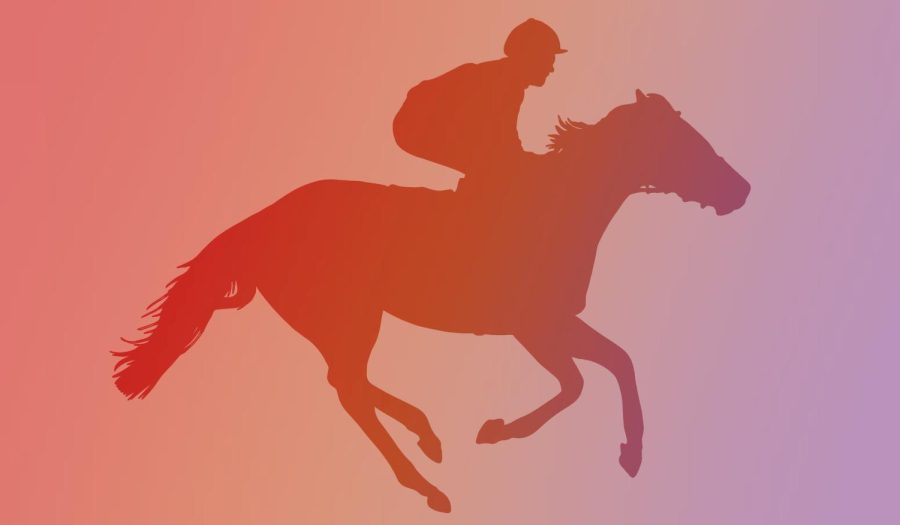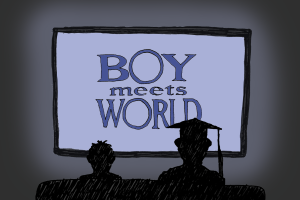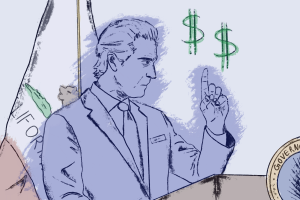The 2023 Kentucky Derby: A Case Against Horse Racing
Photo by Ava Bayley/ UCSD Guardian
May 14, 2023
Last weekend, amid the fancy hats and tails, a new Kentucky Derby champion was crowned at Louisville’s Churchill Downs Racetrack in the iconic race’s 149th running. Underdog Mage pulled off an unexpected victory to push favorite Angel of Empire to a third-place finish and deliver his jockey, Javier Castellano, his first Derby win. However, this heartening victory was overshadowed by a number of tragedies surrounding the race: seven horses had died in the week leading up to Derby day, and an additional five horses had been scratched or taken out of the competition. These tragedies have brought the long-standing debate about the ethics of racing horses to the forefront. This has reignited in fans a reckoning with the dark side of horseracing that has long been pushed to the background, despite such deaths being regular occurrences in the sport.
On April 27, Wild on Ice sustained an injury to his left hind leg and was subsequently euthanized. This was followed by Chloe’s Dream, Take Charge Briana, and Freezing Point, who were also euthanized upon injury; Code of Kings also died from breaking his neck after flipping in the paddock. Parent’s Pride and Chasing Artie collapsed for yet-unknown reasons; their trainer Saffie Joseph has now been served with an indefinite suspension. These deaths are just the most recent additions to the long list of many others like them — all hallmarks of an exceptionally brutal sport. All seven of these horses were younger than or exactly five years old; this poses a striking comparison to the average lifespan of a domestic horse which is between 25 and 30 years.
Although there seems to have been heightened media coverage over the deaths during this year’s Derby, tragedies such as these are unsurprising in the world of horse racing — a fact that should be alarming to any viewer, whether they know nothing about the sport or have been involved in it for years. Hundreds of racehorses die every year, but as Elizabeth Banicki points out in her Guardian article, “Another Weekend of Death at the Kentucky Derby but don’t expect change”, the only reason these seven are getting so much attention is that they happened during the only event that the broad American public cares about before it turns its attention to another sports channel immediately after the race has been run. While race officials have announced that they are launching an investigation into these deaths, it isn’t widely anticipated that such an investigation will initiate any lasting change to the sport that will better protect the horses.
Training a horse to race and the act of participating in a race itself goes against every natural instinct a horse possesses. The fact is, racing inflicts pain on the horse. In terms of physical pain, horses endure everything from controlling them with bits, reins, and bridles to jockeys using whips to spur them to run faster to pure over-exhaustion and physical overexertion as a result of all of it. Mentally, and perhaps emotionally, the lack of autonomy horses are allowed to exert over the movement of their own bodies must be devastating to the horse (it is impossible for us to know exactly how a horse feels, but imagine yourself going through all of this and try not to feel some kind of empathy).
The book “Evidence-Based Horsemanship” by Martin Black and Steven Peters researches the possible ways that horses, especially racehorses, perceive their lives under human control; it argues that horses are pushed into situations in which they are afraid but are unable to flee from this fear, which goes against their natural instincts. They are kept in stables, which can seem like and sometimes are cages, and deprived of the opportunity to socialize with others of their species.
Banicki raises the point that, as an industry, no change to these conditions will ever be adequate, as the system as a whole works entirely against the safety of the animals in the name of profit. It is one of the most popular sports to bet on in the U.S., and there is no way that such a significant source of profit will be dismantled in the name of something so comparatively insignificant as animal welfare.
At this point, I argue that there is no reasonable excuse to continue this sport. Racing horses is a sport of pain and suffering but that which is mainly only inflicted upon its unwilling equine contenders. This year’s Kentucky Derby embraced and carried on that legacy, and although there has been a fair bit of media coverage of the dark side of horse racing, I wouldn’t be surprised if by next week everyone had just moved on and forgotten about the seven young horses who had, essentially, been run to death. Perhaps it was always inevitable that this would happen and then just be swept aside; perhaps it is a testament to the longevity and seeming invulnerability of this very wealthy sport. But, at the very least, I think the 2023 Kentucky Derby should leave a number of important questions lingering in the American public’s consciousness.















